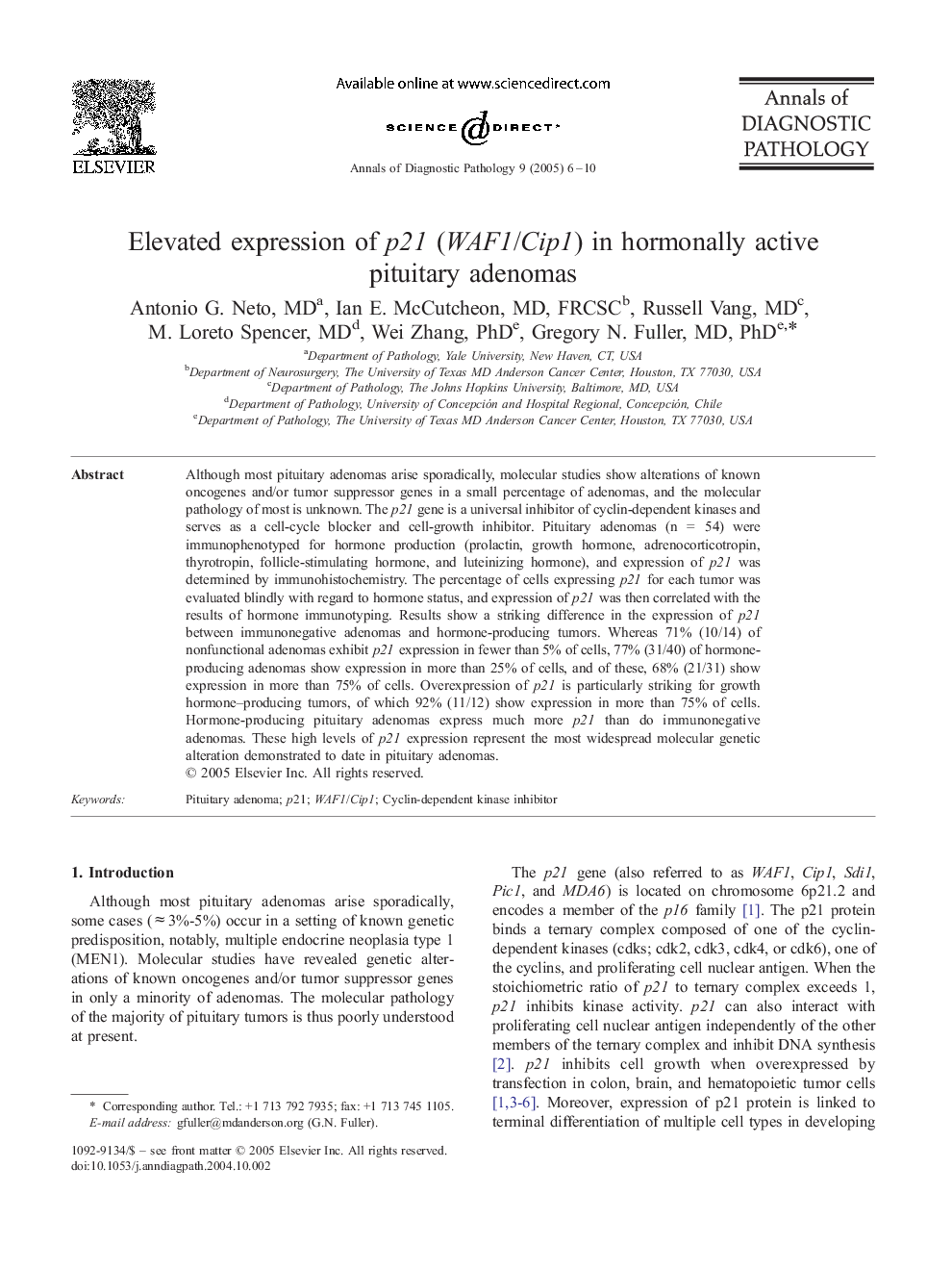| Article ID | Journal | Published Year | Pages | File Type |
|---|---|---|---|---|
| 10090608 | Annals of Diagnostic Pathology | 2005 | 5 Pages |
Abstract
Although most pituitary adenomas arise sporadically, molecular studies show alterations of known oncogenes and/or tumor suppressor genes in a small percentage of adenomas, and the molecular pathology of most is unknown. The p21 gene is a universal inhibitor of cyclin-dependent kinases and serves as a cell-cycle blocker and cell-growth inhibitor. Pituitary adenomas (n = 54) were immunophenotyped for hormone production (prolactin, growth hormone, adrenocorticotropin, thyrotropin, follicle-stimulating hormone, and luteinizing hormone), and expression of p21 was determined by immunohistochemistry. The percentage of cells expressing p21 for each tumor was evaluated blindly with regard to hormone status, and expression of p21 was then correlated with the results of hormone immunotyping. Results show a striking difference in the expression of p21 between immunonegative adenomas and hormone-producing tumors. Whereas 71% (10/14) of nonfunctional adenomas exhibit p21 expression in fewer than 5% of cells, 77% (31/40) of hormone-producing adenomas show expression in more than 25% of cells, and of these, 68% (21/31) show expression in more than 75% of cells. Overexpression of p21 is particularly striking for growth hormone-producing tumors, of which 92% (11/12) show expression in more than 75% of cells. Hormone-producing pituitary adenomas express much more p21 than do immunonegative adenomas. These high levels of p21 expression represent the most widespread molecular genetic alteration demonstrated to date in pituitary adenomas.
Related Topics
Health Sciences
Medicine and Dentistry
Pathology and Medical Technology
Authors
Antonio G. MD, Ian E. MD, FRCSC, Russell MD, M. Loreto MD, Wei PhD, Gregory N. MD, PhD,
